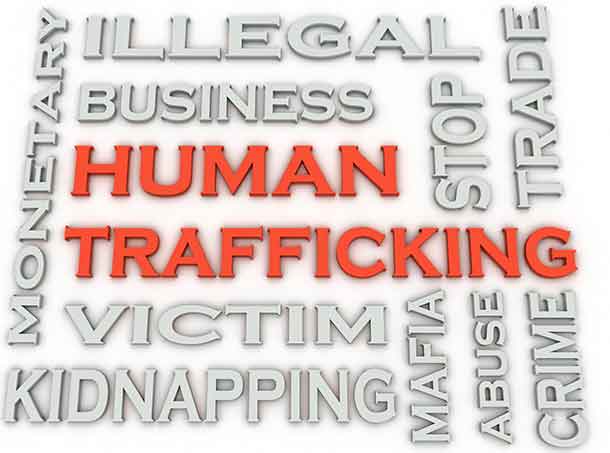
“At first, I denied seeing myself as a victim. I denied any help. But when I heard myself speaking out loud I realised it wasn’t okay”
By Anastasia Moloney
BOGOTA – (Thomson Reuters Foundation) – Enslaved and trapped in a brothel for six years in the southern Argentine port city of Ushuaia, Alika Kinan was beaten and forced to have sex with up to 30 clients a night.
But when police raided the ‘Sheik’ street brothel in the centre of the resort city in a rescue operation in 2012, Kinan’s immediate reaction was one of denial and dismay.
She didn’t recognise herself as a victim. Instead, she tried to defend her pimps and her work.
“It was a short-lived Stockholm syndrome,” Kinan, now 41, said. “I never thought I was a victim of human trafficking. I thought I was working,” she told the Thomson Reuters Foundation.
It was only after her rescue when speaking to state prosecutors about her ordeal did Kinan realise she had fallen prey to a sex trafficking ring.
“At first, I denied seeing myself as a victim. I denied any help. But when I heard myself speaking out loud I realised it wasn’t okay,” Kinan said.
“To recognise one is a victim is to recognise pain, to recognise the abuse suffered during childhood. No one wants to admit one is a victim.”
More than five years on, Kinan has turned anger and denial into a quest for justice. She became the first trafficking victim in Argentina to take her pimps and authorities to court, filing a simultaneous civil and criminal lawsuit against them.

ENTRAPMENT
When she was a teenager, Kinan said her mother abandoned her leaving her to take sole care of her younger sister.
Desperate and hungry, Kinan said a friend knew of a woman who was offering a waitress job in a bar and who would pay for her flight to get there, about 2,000 miles (3,200 km) away from her hometown in Cordoba province.
“Like thousands of women in Argentina, I was pushed into this because of hunger. You don’t have a choice when you don’t have any options,” Kinan said.
But when Kinan arrived aged 19 to the ‘Sheik’ brothel, disguised as a dance club surrounded by barbed wire, Kinan was told she had ran up a debt and her documents were taken away.
“The brothel owners wanted 25 women there at all times. Thousands were trafficked there over the years, including under-age girls,” Kinan said.
JUSTICE?
The most common form of human trafficking in Argentina is women and girls forced into the sex trade, according to the government’s anti-trafficking agency, PROTEX.
This includes vulnerable migrant women from the poorer neighbouring countries of Paraguay and Bolivia and the Dominican Republic, lured by traffickers with false promises of work and then trapped into sex slavery.
Few victims get justice.
About 11,000 victims have been rescued by authorities since Argentina’s 2008 anti-trafficking law was enacted, but only 220 convictions for human trafficking were handed down between 2009 to 2014, according to latest PROTEX figures.
More than four in every five convictions involved women being sexually exploited mostly in bars, cabaret, and nightclubs across Argentina.
Kinan pursued her case, and in 2016 her three alleged traffickers – the brothel manager, owner, and his wife – were convicted of human trafficking and given between 3 to 7-year prison sentences and fined.
However, they appealed the conviction with a decision from the court expected this year, Kinan said.
Undeterred, Kinan brought additional charges against three more people who she says recruited women to work at the ‘Sheik’ brothel in a case that is still ongoing.
As part of the civil lawsuit, a court in 2016 ordered the municipality of Ushuaia and traffickers to pay Kinan about $50,000 in damages – the first time the government has been ordered to pay compensation to a victim of human trafficking in Argentina, according to local media and PROTEX.
But Kinan, a mother of six children, says she has yet to receive any compensation.
“I’ll keep fighting, not just for me and my children but for other women. It’s about vindicating your rights,” she said.
(Reporting by Anastasia Moloney @anastasiabogota, Editing by Ros Russell.; Credit the Thomson Reuters Foundation)






